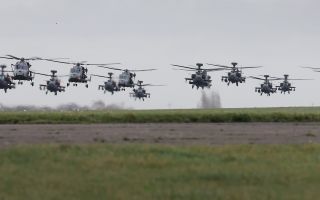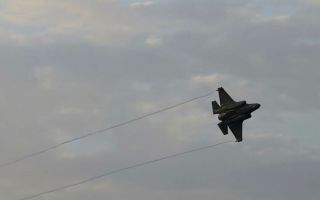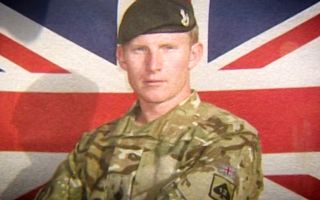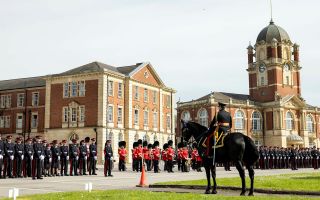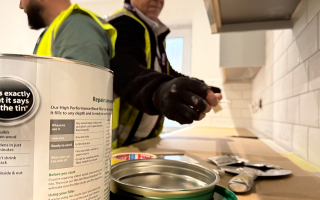Tri-Service
Blair: Battle Against Islamic Extremism Must Be Fought On The Ground
Tony Blair says the battle against Islamist extremism must be fought on the ground, and has warned that the West will not succeed without the correct strategy for tackling the growing threat.
But the former prime minister, who was in power at the time of the 7/7 bombings in London a decade ago, and led the country to war in Afghanistan and Iraq, stopped short of recommending that British troops should be involved in the ground battle against Islamic State.
Mr Blair did say, however, that the West needs to have "the means of combating these people and combating them on the ground".
He told the BBC: "It's a global threat. It is, I'm afraid, a growing threat. But we have got ourselves to a position where it's very clear that unless we take the right policies and strategy to deal with it, we won't be able to succeed.
"Those require a battle of ideas and a fight against the the ideology, not just the violence but the ideology and the extremism.
"But also you have got to have the means of combating these people and combating them on the ground."
Pressed over whether the response should involve British boots on the ground, he said: "This is maybe a discussion for another day."
Mr Blair's words came on the 10th anniversary of the 7/7 London bombings. Picture: Francis Tyers
With the government raising the possibility of a possible extension of the air campaign against IS to targets in Syria as well as Iraq, Mr Blair said the terror threat was not going away.
He said: "I don't criticise Western leadership today but I do say this is a long hard struggle and we've got to be prepared to engage over a long period of time because at the time of 7/7, we faced people who had been radicalised over a period of time.
"We face a situation today where you have fighters coming back from Syria who are our own citizens. You have training camps actually in Libya not just in Syria, in Iraq and elsewhere and this threat is not going away. It will intensify in time to come."
In a separate interview, conducted by his former Cabinet colleague Dame Tessa Jowell on LBC Radio, Mr Blair denied that the UK had brought attacks such as the 7/7 atrocity on itself by joining the war in Iraq.
"One of the most important things to do here is look at this in the bigger context," he said.
"9/11 in New York was probably the first really large scale terrorist attack. Obviously, we had certain foreign policy responses to that.
"The problem is that even those countries that didn't participate in Iraq at all, like France, are now subject to these attacks.
"We have seen them most recently in Tunisia. Countries like Belgium or Norway, who are countries that have no real foreign policy presence, are also subject to this.
"This is a global problem ... and the only way of dealing with it ultimately is for people to come together whatever their faith background and say we are united against this terrorism, and to say we are not going to allow anyone to excuse themselves by saying the slaughter of totally innocent people is somehow a response to any decision by any government.
"It is the responsibility of those who carry out the attacks of terrorism and those who incite them."
Responding to Mr Blair's comments, David Cameron's official spokeswoman said: "The Prime Minister's position on how we should tackle Isil is clear. He has set it out several times.
"That involves a fully-fledged response, whether that is looking at how you tackle extremism and radicalisation at home, how you are working with partner countries, or in Iraq and Syria looking at how you enable local forces on the ground to take the fight to Isil."
Cover photo courtesy of Marc Müller / MSC via Wikimedia Commons.


